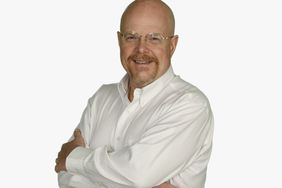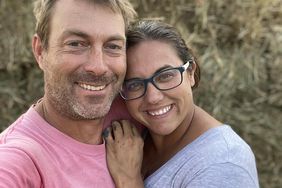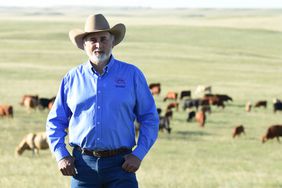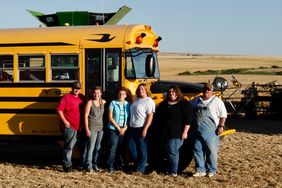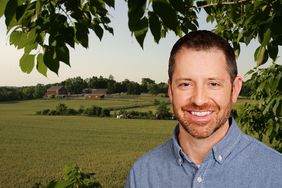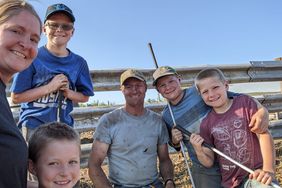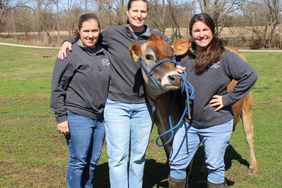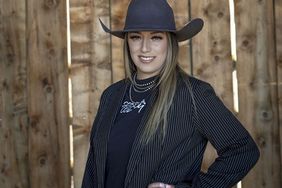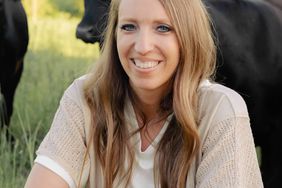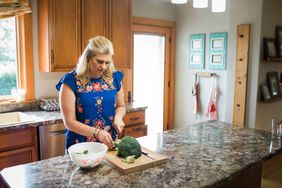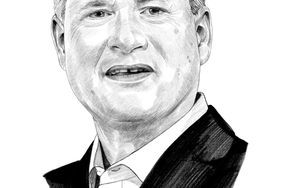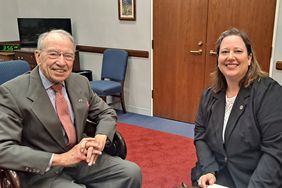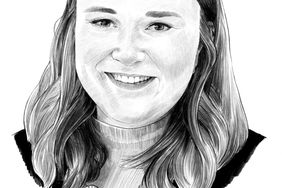:max_bytes(150000):strip_icc()/29373Kremerfinal_preview-285ef4f5657a4397a697ad00790bff51.jpg)
Lauren Crow
Revital Kremer is leading the charge in helping farmers use ag tech to overcome water scarcity as climate change challenges growing conditions around the world.
Kremer joined SupPlant, a precision ag tech company, after more than two decades working with technology teams in military, gaming, and other software domains.
“When I came to SupPlant in 2020, I felt for the first time I have a chance to not only develop software but to also create something that has an impact on the world,” Kremer says.
SupPlant uses data collected from soil and weather sensors for the platform’s algorithms to provide actionable agronomic insights to farmers. This, combined with forecasts and crop growth models, creates daily irrigation recommendations and preemptive plans to overcome extreme weather events.
“Throughout the day, we take measurements by the micrometer every half hour,” explains Kremer. “This allows us to trace early stages of stress and other problems. We believe in taking a proactive approach rather than a retroactive approach. We say that we ‘help farmers speak better plant.’ ”
SF: What is your mission as chief technology officer?
RK: My mission is to develop cutting-edge technology in agriculture — sophisticated solutions enabled in a simple way. Our products serve farmers who just want the raw data that comes from the sensors and others who only want the calls to action we provide. Our system has a wide range of users, and each one of them should gain what they need from the system. This is the major challenge we face. Our system should also be able to support many farmers at a high scale.
SF: Why is this technology so important for the future of climate change?
RK: One of our customers said that a long time ago taking care of a crop was like following a recipe in a cookbook. There was a certain amount of water and other treatments the plant should have at a particular time during the season. It was very strict. And now, it’s the same recipe, but rather than an oven, you have a fireplace because the environment is changing.
We see that the temperature increases exponentially during the seasons; the winter becomes rainier, and the summer has more heat-wave events. That changes how farmers have to treat the plants. It’s not something you can really read in books. You have to listen to your crops and decide what to do.
SF: How does SupPlant support farmers?
RK: Our sensor-based solution is targeted to the 2% of farmers with large operations, but we want to enable more farmers to “unmute their crops” and that means supporting the other 98% who are smallholder farmers. So, for example, we have a large project in Kenya with 500,000 women farmers growing maize. They use our sensor-less solution for daily irrigation recommendations, weather advisory, and weather statistics. It’s so exciting to help women in this area.
SF: What challenges or opportunities have you found while working in ag tech?
RK: High tech, and ag tech specifically, is a male-dominated area. This is obvious. I really believe that men and women are different and I wouldn’t want either to have the same qualities. But that has nothing to do with my success in technology or ag tech. I don’t think that I have to be strong or have to be fast in order to succeed.
I have had some experience with people in industries not listening or not taking me into consideration because I’m a woman. I got more and more experience with how to deal with this through the years. When I joined SupPlant, I was surprised to see how encouraging and supportive of an environment I have here. At this time, 50% of the C-suite are women. In the research and development department, 40% are women.
SF: What does the future look like for others seeking to innovate?
RK: In terms of ag tech, I think that this domain should come up with a holistic solution and not force farmers to deal with different solutions and platforms in order to get their data. At SupPlant, we are looking at how we can collaborate with other companies to do this.
I really believe that every decision should be based on data and not feelings. At SupPlant, we have 1.2 billion measurements from different crops, which is a huge asset for us. We should use this asset to create a robust, reliable solution and improve it over time.
